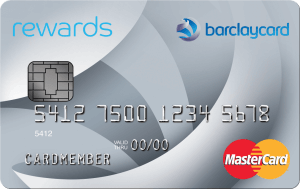- myFICO® Forums
- Types of Credit
- Credit Cards
- Re: Getting a Citi DC as a student?
- Subscribe to RSS Feed
- Mark Topic as New
- Mark Topic as Read
- Float this Topic for Current User
- Bookmark
- Subscribe
- Mute
- Printer Friendly Page
Getting a Citi DC as a student?
Is your credit card giving you the perks you want?
Browse credit cards from a variety of issuers to see if there's a better card for you.
- Mark as New
- Bookmark
- Subscribe
- Mute
- Subscribe to RSS Feed
- Permalink
- Report Inappropriate Content
Re: Getting a Citi DC as a student?
@Anonymous wrote:
@kdm31091 wrote:
@Anonymous wrote:
@axlm wrote:
@Anonymous wrote:Okay. I have access to $400k in savings and CDs.
Do I have the right to enter that into my annual income field?
While I don't know wheter it's acceptable or not from a legal standpoint, my feeling is that you can. I mean, if it is yours, and you really can take the money out of those savings and pay your balances, why not? Now, if you only have access to them, but they are not under your name, I wouldn't do it.
They are mine, and I can legally withdraw money from them.
Savings is not (IMO) income, nor are CDs. As Heavenly mentioned you could blow through all of that money tomorrow, so the creditor may not really consider it as income.
Even so, someone putting "400k" as their income is probably going to raise some eyebrows.
Bad idea IMO...be honest and provide your income from employment, even investment income...but just savings accounts or CDs? To me no, that's not income.
It's for your protection really, because if you provide all that as income, you may be given a higher limit and you could overextend yourself. Since the "income" you provided isn't really "income", you could be in over your head. Then the cycle of "just taking a little bit" from the savings/CD begins, and before you know it, the 400k is gone. It's an extreme example, but I just want you to know why I'm advising against this.
That's the answer I was looking for.
That's why I think savings and financial aid should not qualify as income because money does not come at a steady stream.
This article seems to confirm my feeling that when a lender asks for income, they are talking about means available to repay your debt.
After Feb. 22, 2010, applicants may be asked to pony up the following kinds of proof of ability to repay credit card debts:
- Salary, wages, bonus pay, tips and commissions from full- or part-time, seasonal, military or irregular jobs and self-employment.
- Interest, dividends, retirement benefits, public assistance, alimony checks, child support and other kinds of maintenance payments.
- Savings accounts or investments.
- Credit reports and credit scores.
I'm not advising or implying wheter this is a wise thing to do, just if it is OK or not, which was the original point, anyway.





Last update: NOV 2022








- Mark as New
- Bookmark
- Subscribe
- Mute
- Subscribe to RSS Feed
- Permalink
- Report Inappropriate Content
Re: Getting a Citi DC as a student?
Here's what the Citi website says:
Examples: Salary, wages, interest, dividends, rental income, retirement benefits. If you are 21 or older, you may include income from others that you can reasonably access to pay your bills.
You do not have to include alimony, child support, or separate maintenance income if you do not want it considered as a basis for repaying this debt.
Some of these are less "steady" than financial aid. Dividends? That can easily change. Just cause her financial aid will end in a year after she graduates...well, she'll have a new job. Just like someone's salary at job 1 may be X / year, but they could easily change that job the next year and now their salary is $Y per year. Or worse, they are laid off! Point is, it's not just salary/wages. But it specifically says 'maintenence income' (which you can leave off if you want), and "income from others". I'm sure once she graduates and gets a FT job, she will apply for a CLI based on her new salary and therefore, new income.
Point is, it's the amount of money she gets per year that she can access to pay her bills. It's not like students barter for food; they still need to make purchases. Like I said, she's in grad school so she already has several years of perfect credit and on-time payments and responsible credit usage, so there's that too. Plus, in the end, the fact that she ultimately got approval.....I just don't think she swindled the system at all by mucking up some fake number, there is basis to this value.
- Mark as New
- Bookmark
- Subscribe
- Mute
- Subscribe to RSS Feed
- Permalink
- Report Inappropriate Content
Re: Getting a Citi DC as a student?
Yeah, I'm really just being devil's advocate. I took income to mean steady earnings.
Good point about the dividends.
IMO, whole thing is debatable, yes?
- Mark as New
- Bookmark
- Subscribe
- Mute
- Subscribe to RSS Feed
- Permalink
- Report Inappropriate Content
Re: Getting a Citi DC as a student?
Yup. I think what one puts in that box can be fluid, as long as they can justify that number in some way (even if it's a stretch) as long as it's not just making it up from thin air.
- Mark as New
- Bookmark
- Subscribe
- Mute
- Subscribe to RSS Feed
- Permalink
- Report Inappropriate Content
Re: Getting a Citi DC as a student?
@Anonymous wrote:
If she has zero income how exactly does she plan on paying her credit card bill? If she has no income then truthfully $0 should go in the income box which I imagine would lead to a denial.
Not exactly true.... If I remember the fine print if you're over the age of 21 you can add stuff like GF/BF income should you want to include it along with the Spuse and etc. I thought I saw that but I could be wrong

My Cards: Amex BCE: $9,000, Amex Hilton HHonors: $2,000, Amex ED: $12,000, Barclays NFL extra points: $3,000, Bank of America MLB cash rewards: $17,000, BBVA compass NBA Amex triple double rewards: $17,000, Chase Amazon: $1,000, Chase Freedom: $9,000, Chase Sapphire: $5,000, Chase Slate: $5,000, Chase Disney: $4,000, Citi Double Cash: $5,400, Citi AA plat: $5,500, Citi Simplicity: $3,000, Citi Thank you preferred: $8,800, Capital one GM: $2,000, Capital one PlayStation: $3,000, Gamestop: $1,150, Amazon Store: $5,000, Ebay MasterCard: $5,000, American Eagle Storecard: $750, Macy's: $500
EX: 744, TU:750, EQ: 740
- Mark as New
- Bookmark
- Subscribe
- Mute
- Subscribe to RSS Feed
- Permalink
- Report Inappropriate Content
Re: Getting a Citi DC as a student?
@Closingracer99 wrote:
@Anonymous wrote:
If she has zero income how exactly does she plan on paying her credit card bill? If she has no income then truthfully $0 should go in the income box which I imagine would lead to a denial.Not exactly true.... If I remember the fine print if you're over the age of 21 you can add stuff like GF/BF income should you want to include it along with the Spuse and etc. I thought I saw that but I could be wrong
This is directly from the Citi DC app: "If you are 21 or older, you may include income from others that you can reasonably access to pay your bills".
- Mark as New
- Bookmark
- Subscribe
- Mute
- Subscribe to RSS Feed
- Permalink
- Report Inappropriate Content
Re: Getting a Citi DC as a student?
@Anonymous wrote:
@Closingracer99 wrote:
@Anonymous wrote:
If she has zero income how exactly does she plan on paying her credit card bill? If she has no income then truthfully $0 should go in the income box which I imagine would lead to a denial.Not exactly true.... If I remember the fine print if you're over the age of 21 you can add stuff like GF/BF income should you want to include it along with the Spuse and etc. I thought I saw that but I could be wrong
This is directly from the Citi DC app: "If you are 21 or older, you may include income from others that you can reasonably access to pay your bills".
exactly...or more than often "household income". use the income at your parents permanent address unlesss they are millionaires. if not, then write in what you take in per month from all sources. done deal.
- Mark as New
- Bookmark
- Subscribe
- Mute
- Subscribe to RSS Feed
- Permalink
- Report Inappropriate Content
Re: Getting a Citi DC as a student?
@Anonymous wrote:
@Closingracer99 wrote:
@Anonymous wrote:
If she has zero income how exactly does she plan on paying her credit card bill? If she has no income then truthfully $0 should go in the income box which I imagine would lead to a denial.Not exactly true.... If I remember the fine print if you're over the age of 21 you can add stuff like GF/BF income should you want to include it along with the Spuse and etc. I thought I saw that but I could be wrong
This is directly from the Citi DC app: "If you are 21 or older, you may include income from others that you can reasonably access to pay your bills".
And what if you're 18? Will all of these rules discussed in this thread apply still?
- Mark as New
- Bookmark
- Subscribe
- Mute
- Subscribe to RSS Feed
- Permalink
- Report Inappropriate Content
Re: Getting a Citi DC as a student?
Last App: 1/10/2023
Penfed Gold Visa Card
Currently rebuilding as of 04/11/2019.
Starting FICO 8 Scores:



Current FICO 8 scores:



- Mark as New
- Bookmark
- Subscribe
- Mute
- Subscribe to RSS Feed
- Permalink
- Report Inappropriate Content
Re: Getting a Citi DC as a student?
@OmarGB9 wrote:
If you're under 21 (18), then you can ONLY include your own income.
Right, but does this still include the money you have access to?
Per above, we discussed savings can be counted as our income. Let's say this is valid for this situation.
And I also have a $25k savings account with my dad (joint). Do I get to include this? It is technically mine. Yet technically it is his too.